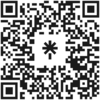Emotional Beings. The impact of the first emotional relationships throughout life
Keywords:
early affective exchange, attachment, self-regulation, psychological disordersAbstract
Psychology has always shown the impact that the first affective relationships have for the development of the human being. However, recent research in developmental psychology and neurodevelopment is showing the specific mechanisms that are involved in that process. The aim of this paper is to present these mechanisms and to gather the empirical evidence that shows how the early emotional exchange between the baby and the main caregiver plays a very important role in later development. We discuss the passage from early emotional exchange to attachment and emotional competence in childhood. We also show the link between attachment and the development of some specific skills in adulthood, such as narrative and self-regulation. These two skills seem closely linked to mental health. All this evidence allows to defend our main thesis: the development of the human being is based, to a great extent, on the impact produced by the first emotional relationships and knowledge about this impact could help in the prevention of psychological disorders.











